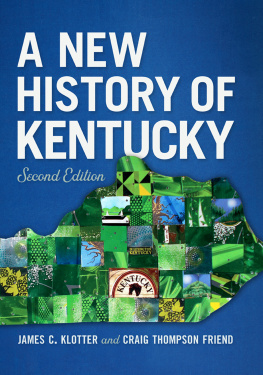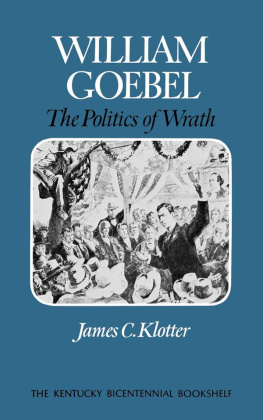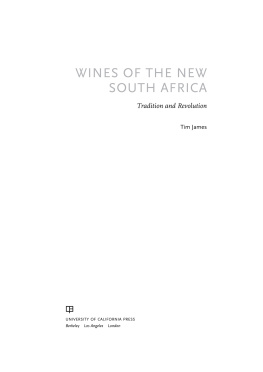The Human Tradition
in the New South
The Human Tradition in America
CHARLES W. CALHOUN
Series Editor
Department of History, East Carolina University
Michael A. Morrison, ed., The Human Tradition in Antebellum America (2000)
Malcolm Muir Jr., ed., The Human Tradition in the World War II Era (2001)
Ty Cashion and Jess F. de la Teja, eds., The Human Tradition in Texas (2001)
Benson Tong and Regan A. Lutz, eds., The Human Tradition in the American West (2002)
Charles W. Calhoun, ed., The Human Tradition in America from the Colonial Era through Reconstruction (2002)
Donald W. Whisenhunt, ed., The Human Tradition in America between the Wars, 19201945 (2002)
Roger Biles, ed., The Human Tradition in Urban America (2002)
Clark David and David Igler, eds., The Human Tradition in California (2002)
James C. Klotter, ed., The Human Tradition in the Old South (2003)
Nina Mjagkij, ed., Portraits of African Amerian Life since 1865 (2003)
Charles W. Calhoun, ed., The Human Tradition in America: 1865 to the Present (2003)
David L. Anderson, ed., The Human Tradition in America since 1945 (2003)
Eric Arnesen, ed., The Human Tradition in American Labor History (2003)
James C. Klotter, ed., The Human Tradition in the New South (2005)
The Human Tradition
in the New South
Edited by
James C. Klotter

ROWMAN & LITTLEFIELD PUBLISHERS, INC.
Published in the United States of America
by Rowman & Littlefield Publishers, Inc.
A wholly owned subsidiary of The Rowman & Littlefield Publishing Group, Inc.
4501 Forbes Boulevard, Suite 200, Lanham, Maryland 20706
www.rowmanlittlefield.com
PO Box 317
Oxford
OX2 9RU, UK
Copyright 2005 by Rowman & Littlefield Publishers, Inc.
All rights reserved. No part of this publication may be reproduced, stored in a retrieval system, or transmitted in any form or by any means, electronic, mechanical, photocopying, recording, or otherwise, without the prior permission of the publisher.
British Library Cataloguing in Publication Information Available
Library of Congress Cataloging-in-Publication Data
The human tradition in the New South / edited by James C. Klotter.
p. cm.
Includes bibliographical references and index.
ISBN 978-0-7425-4476-5
1. Southern StatesBiography. 2. Southern StatesHistoryAnecdotes. I. Klotter, James C.
F208.H86 2005
Printed in the United States of America
 The paper used in this publication meets the minimum requirements of American National Standard for Information SciencesPermanence of Paper for Printed Library Materials, ANSI/NISO Z39.48-1992.
The paper used in this publication meets the minimum requirements of American National Standard for Information SciencesPermanence of Paper for Printed Library Materials, ANSI/NISO Z39.48-1992.
Contents
| James C. Klotter |
| Cita Cook |
| Paul K. Conkin |
| Kathryn W. Kemp |
| John David Smith |
| Rebecca Sharpless |
| S. Spencer Davis |
| William J. Marshall |
| Margaret Ripley Wolfe |
| John Ed Pearce |
| Christopher Waldrep |
| Gerald L. Smith |
| David L. Anderson |
Acknowledgments
The following chapters were previously published and are reprinted with permission:
, Hester Calvert: Farm Wife, by Rebecca Sharpless, from The Human Tradition in Texas, edited by Ty Cashion and Jesus F. de la Teja. Wilmington, DE: Scholarly Resources Books, 2001.
, Ma Rainey: Mother of the Blues, by S. Spencer Davis, from The Human Tradition in America between the Wars, 1920-1945, edited by Donald W. Whisenhunt. Wilmington, DE: Scholarly Resources Books, 2002.
Introduction: The American South
James C. Klotter
For those who study the South, questions abound. Why examine this region? What, in fact, is the South? Is there one South or several? What is its history, and how does it influence the present and the future? And, most of all, what stories can the people of this region tell to help explain the South and those who call it home? How can those human traditions help us understand this distinct place, this South?
If many questions exist, so too do many answers, some of them contradictory. But on the matter of why the South deserves special study, the explanations generally agree. W. J. Cash, in his controversial, entertaining, and still influential Mind of the South (1941), wrote that people of all regions of American had a profound conviction that the South is another land. With justification, said Cash, the South should be viewed as not quite a nation within a nation, but the next thing to it. Historian Carl Degler remembered that when he grew up in the North, he considered the South not only a different but an exotic place... almost a foreign country. Another student of the regions history, Charles P. Roland, similarly noted that more than any other part of the United States, the South gave expression to its sectional consciousness. The region bore the mark of a different past reinforced by a widespread awareness and interpretation of it. Settlement patterns, culture and folkways, slavery and segregation, defeat and the Lost Causethese and more contributed to the shaping of the particular history that created a different region, this almost foreign place to some, this almost-nation to others.
While all those observers described a distinctive South in the twentieth century, the idea of the South as a separate entity had been well Debates over slavery already had created divisions during the revolutionary era; sectional voting emerged more clearly by the time of the Missouri Compromise and had grown by the Compromise of 1850; discord developed into secession, full-scale war, and a separate nation by the Civil War. After what the South called the War Between the States and what some northerners termed the War of the Rebellion, the ex-Confederacy generally became occupied territory, subject to Reconstruction, and with an emerging story not found anywhere else in America. Other chapters added to that account over the years, so that Dixie became recognized as a region different from any other in the nation. History shaped and formed a southern identity.
THE REGION
If there is an identifiable South, with a past worthy of study, what exactly constitutes the region? Definitions vary. Most include the eleven states that formed the Confederacy as the core of the SouthVirginia, North Carolina, South Carolina, Florida, Georgia, Tennessee, Alabama, Mississippi, Louisiana, Arkansas, and Texas. Most also place Kentucky in that mix; although it was a slave state that did not leave the union, its actions before and after the war tied it closely to the South. Beyond those states, various places have and have not been includedinfrequently Delaware, occasionally Missouri or Maryland or West Virginia, more often Oklahoma. Sociologists generally define a region as an area of which the inhabitants feel themselves a part. In asking people a series of questions, they seek to find whether the individuals consider themselves southern. As Cash said, the South might be, most of all, a state of mind. If so, the degree of southern-ness determines placement in the region. Using that method of preference, for example, indicates that Kentuckians consider themselves more southern than Floridians, with their large number of out-of-state retirees, or Texans, with their western traditions. Yet those and the other ex-Confederate states all rank high on the scale of southern-ness. Combining, then, history and preference, the South, as defined in this work, consists of the eleven original Confederate states that left the Union, plus Kentucky and Oklahomathe definition also used by national polling organizations. Still, as John Shelton Reed notes, some are born southern, some achieve it, and some have it thrust upon them.







 The paper used in this publication meets the minimum requirements of American National Standard for Information SciencesPermanence of Paper for Printed Library Materials, ANSI/NISO Z39.48-1992.
The paper used in this publication meets the minimum requirements of American National Standard for Information SciencesPermanence of Paper for Printed Library Materials, ANSI/NISO Z39.48-1992.